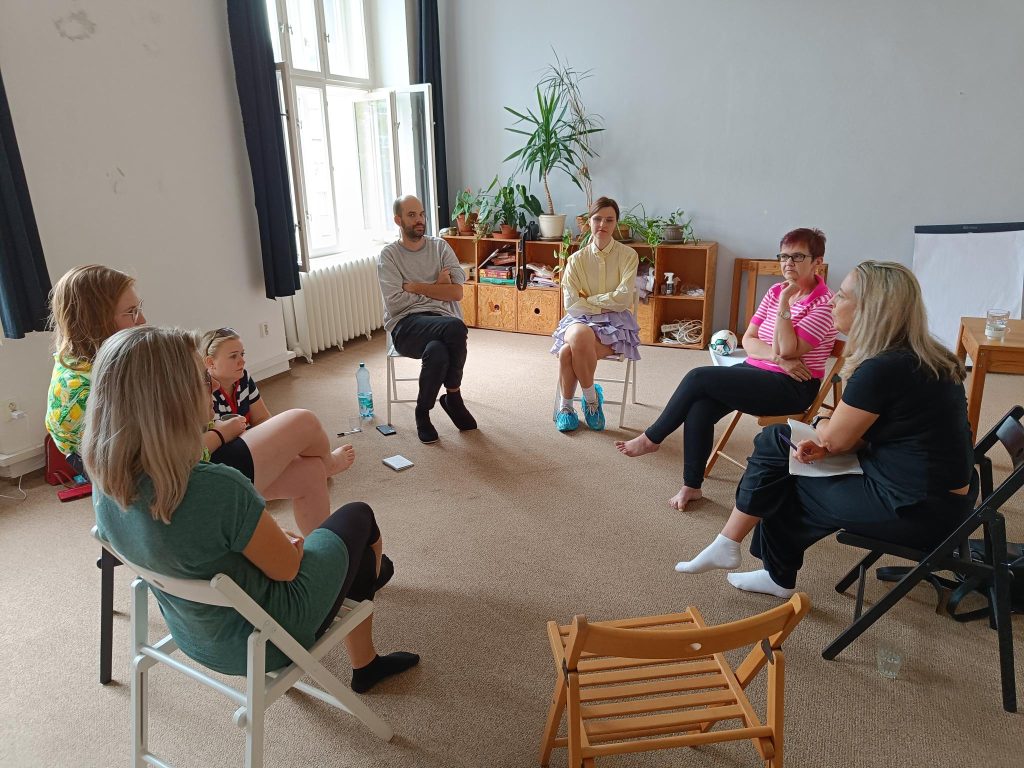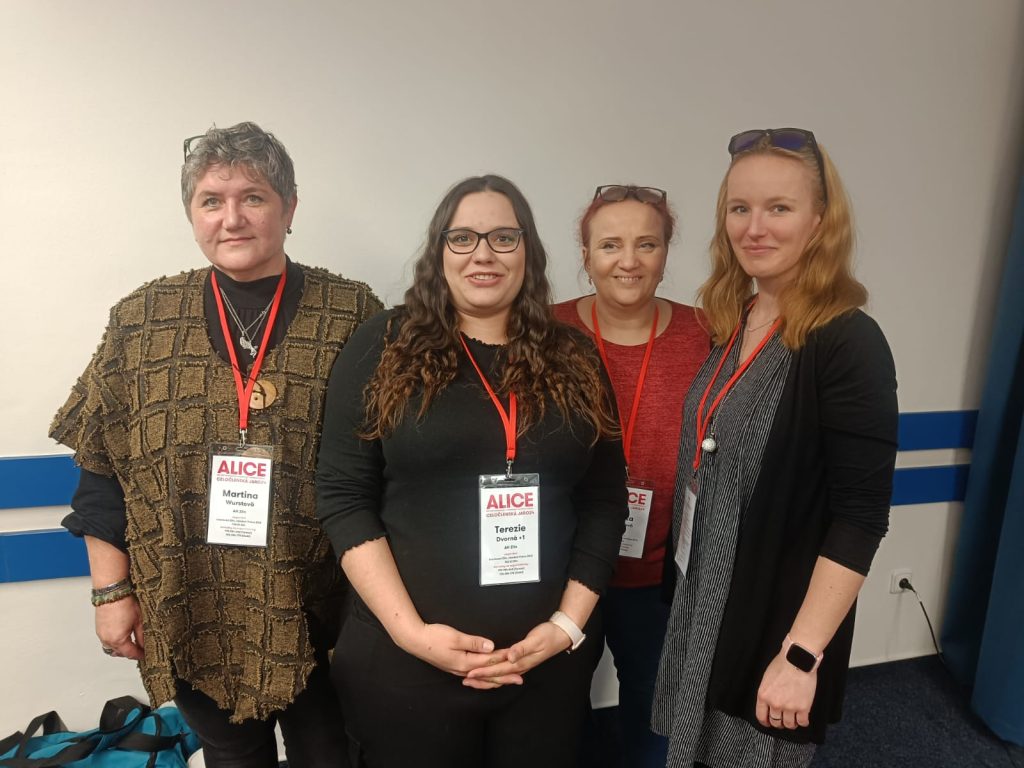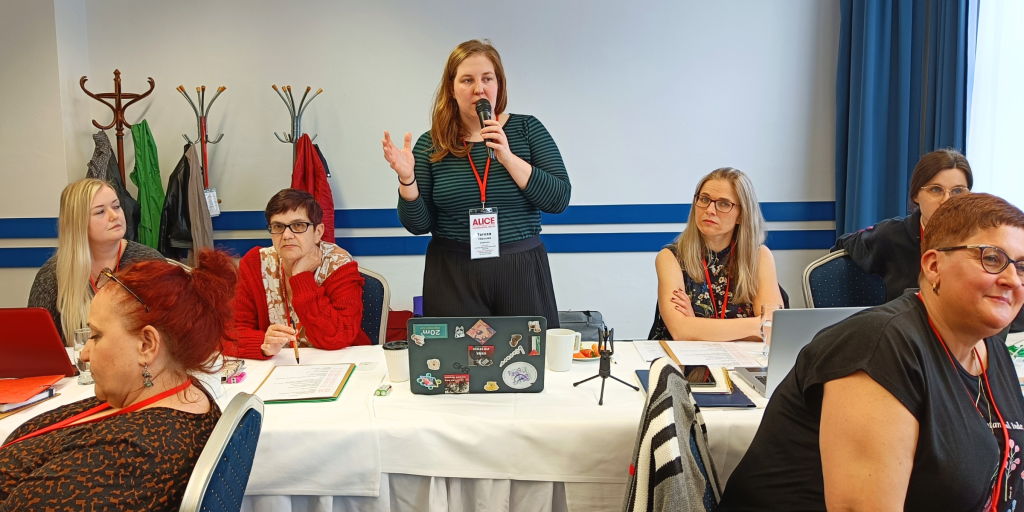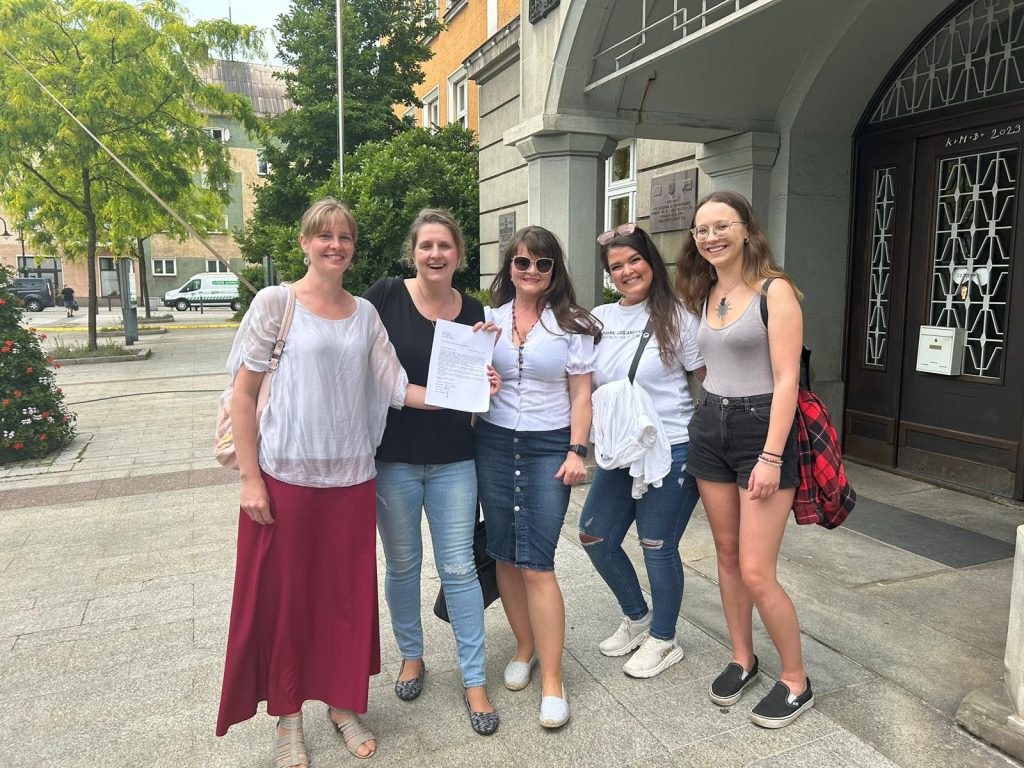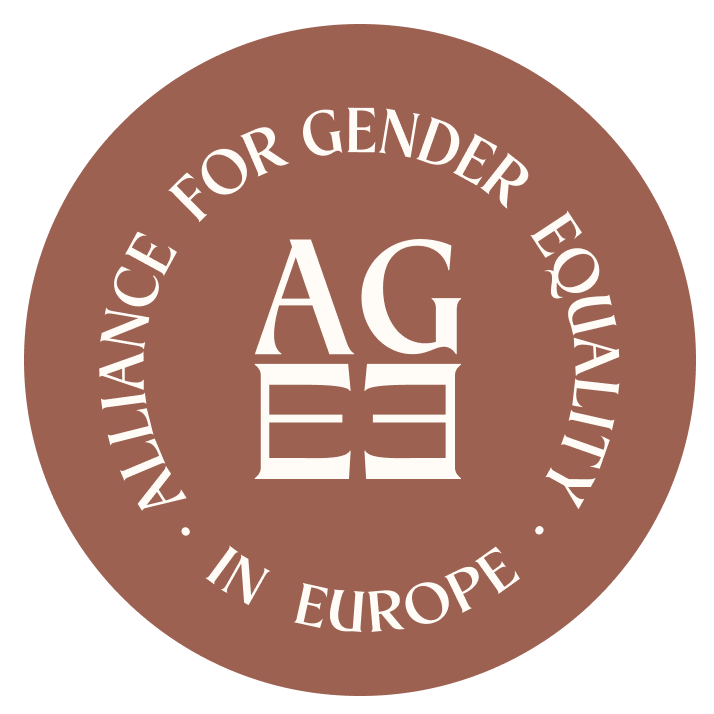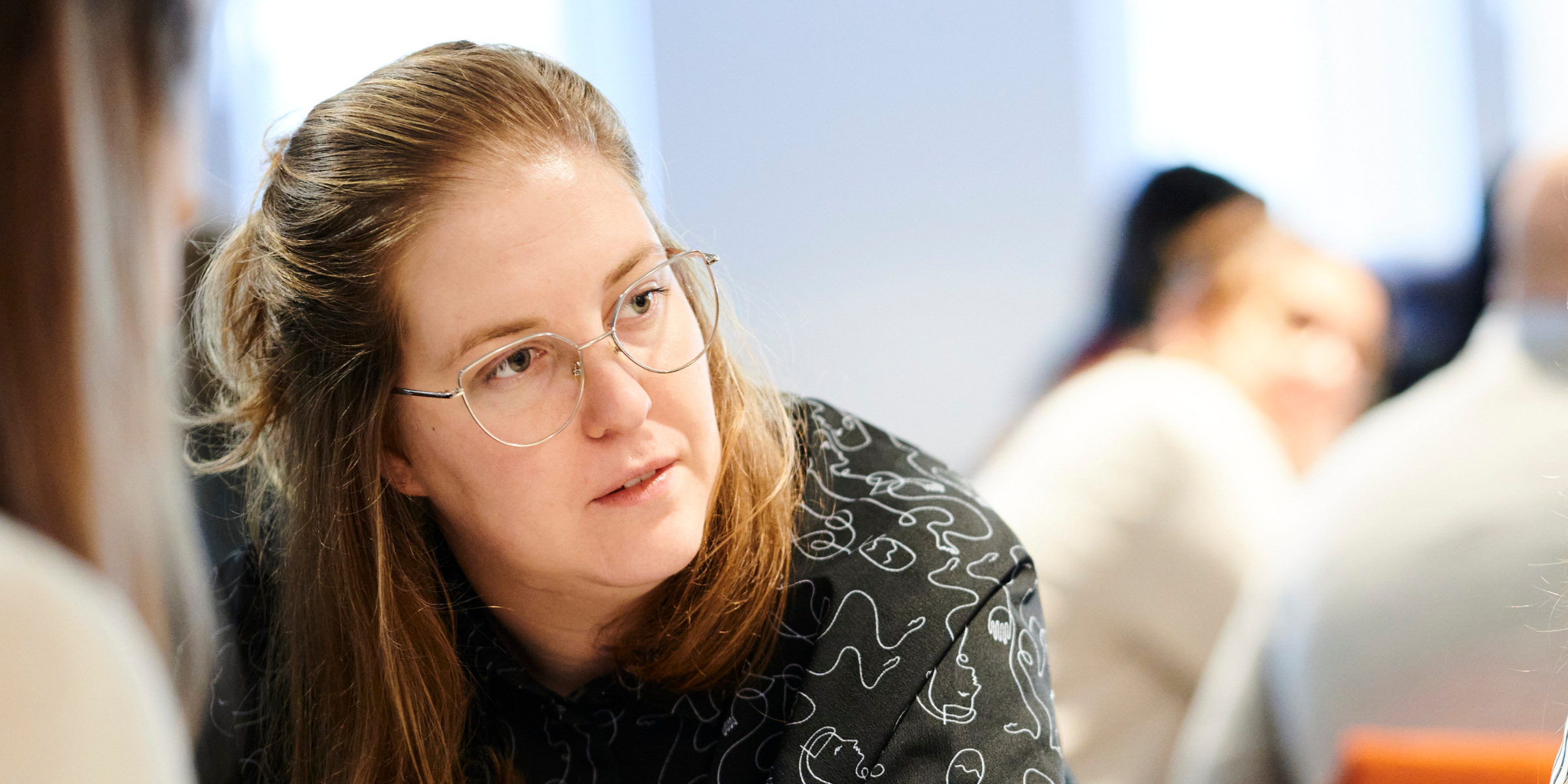ALICE is a trade union of care workers in the Czech Republic. It organises, trains, and advocates for better wages and improved working conditions for social and care workers throughout the country.
We recently spoke with Tereza Táborská from ALICE to hear more about their work, which we are supporting through our 2023 economic opportunities fund.
With the support of our grant, ALICE care workers have already successfully negotiated collective agreements with two major employers in the care and social sector, resulting in well-deserved pay raises for thousands of employees.
Tereza, care work is essential for society but often remains invisible and undervalued. Why do you think this is the case?
We care for those who are in need. Some of us work with people with disabilities, those battling addiction, or experiencing homelessness, and many of us work in elderly care. Unfortunately, people in need are often seen as a burden, which leads to our efforts being dismissed and devalued.
This is also closely connected with care being perceived as women’s work. Women are often expected to care for free, looking after our children, our homes, and our ageing parents, which is taken for granted, and wages in the care sector reflect this thinking. Many people in our society view solidarity and humanity as a financial burden. However, our work demonstrates that a society is only as strong as its weakest members. Improving the lives of individuals works wonders for the whole system, because when people are healthy, have safe homes, and workplaces, they tend to be more productive and less dependent.
The COVID-19 pandemic has further worsened the working conditions for care and social workers. Can you describe their current situation and the challenges they are now facing?
The Covid-19 pandemic had a significant impact on us. Previously invisible, we became superstars and were finally seen and heard, especially when we spoke up about the lack of protection and the physical and mental exhaustion we faced. This visibility helped ALICE to establish itself and start our ongoing fight against inequality.
Today, one of the biggest challenges is the lack of political will to invest in social work and care professionals. We are experiencing severe under-staffing, which leads to complete exhaustion and burnout among those who remain. Luckily, in ALICE, we can help our members fight for better working conditions to prevent these issues.
What is the main focus of your efforts right now within this project? What are you dedicating most of your time to?
Our main focus currently is to educate and organise care and social workers across the entire country. We are teaching them how to form trade unions in their workplaces and negotiate better working conditions for themselves. This includes effectively communicating with management to ensure their needs are met. Additionally, we provide information on labour law, so they have a basic understanding when issues arise, supported by a professional lawyer, who is available whenever needed.
We are also dedicating significant efforts to building a strong sense of solidarity and companionship within a supportive community that offers a safe space to anyone who needs it.
Is there anything you have learned that you would like to share with other activists? What should they know when advocating for dignified workplaces and economic opportunities?
The core of our work is the empowerment and emancipation of workers, helping them realise their own strength and understand that it is perfectly acceptable to ask for better working conditions even if they are “just a care worker” or “just a girl”. Once their mindset shifts, they can achieve anything.
How has the support from the Alliance for Gender Equality in Europe impacted your work so far?
It is the absolute best! Seriously. A big challenge for any trade union is the lack of time, since we all work full time and dedicate a lot of unpaid time to union activities. The biggest impact of the Alliance’s support is that it has allowed us to “buy time” by hiring a community organiser and partly hiring some of our team members. We have grown so much over the last year!
